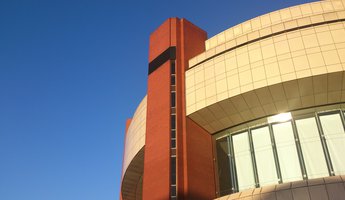Reflections on Ultrasound training during COVID-19
Three enlightening reflections from personal experiences of ultrasound training during the pandemic.
Ultrasound Academy at LNWUH Trust – Reflections on ultrasound training during the pandemic
In addition to the known difficulties of teaching and learning ultrasound, the pandemic gave us additional challenges including:
- more anxiety , especially as obstetric patients were attending scans on their own
- nervous patients who wanted to attend for their scans but were naturally worried about their “safety” while attending for their scans
- Communication and consent made difficult by both practitioners and patients wearing masks
- Students had a gap in their practical training, while they were redeployed to x-ray department
- Academic training was moved to on line lectures, students missed interaction with their peer group and face to face support from lecturers
Two new practice educators (1.6wte) started at the academy in January 2021, to join the 1wte Lead Tutor. This team has a wealth of experience in performing clinical US, teaching ultrasound and undertaking assessments.
We felt that our many years of experience was a great bonus, as we were able to instil confidence in both our students and patients that we could continue our scanning service in a safe manner.
While our students coped admirably during the pandemic, some students did require an extension to complete training.
Clear communication and continued reassurance were pivotal during US examination. Patients appreciated face to face contact and often expressed their gratitude at being seen. This makes our job worthwhile, knowing that you have made a difference.
Article by M Haroon Qarib, Sally Connell and Sujata Patel
Reflections on ultrasound training during the pandemic: Amal Abdi
Ultrasound training is mainly based on practical training in the clinical department. Due to COVID-19 the number of people in the room during a scan had to be reduced. This meant that a lot of ultrasound students were taken out of training and redeployed back to their respective departments. Although I was redeployed back to the x-ray department and was unable to do any practical training, through the help and support of my clinical supervisors my training overall was not stopped. My supervisors adapted my training by using teams and setting me workshops to complete. We would go through topics such as report writing and discussed cases with pathology. This ensured my learning did not stop and I was able to strengthen the other areas outside of practical scanning.
Upon returning back to clinical practice a lot of new safety measures were put into place to ensure the safety of staff, students and the patients. I was given intense practical training that consisted of specific learning objectives and dedicated workshop sessions. As I was able to practice a lot of report writing and evaluating abnormalities with my supervisors during my break in training, this meant once I was back to scanning I had already strengthened those areas. Thus, this allowed me to complete and pass my clinical assessments in one month of returning to clinical practice even though I had missed four months of scanning due to COVID-19.
Overall, I am extremely thankful to my clinical supervisors for their dedication as I would not have been able to complete my Postgrad Diploma without them.
Amal Abdi
Reflections on ultrasound training during the pandemic: Roshni Patel
Training in ultrasound throughout the COVID-19 pandemic was challenging in many ways. Initially some of the challenging aspects were reassuring patients and reducing their anxiety while wearing a mask, which meant we were unable to use facial expressions to help us with this which was difficult in sensitive situations. Although this was the case I was able to learn from the sonographers how to adapt your voice and communication to help reassure patients in a different way. A specifically challenging moment for many of the ultrasound students was redeployment back to the x-ray department to help with increased workload therefore halting our practical ultrasound training. However although this was challenging I felt well supported by the academy as I had weekly Microsoft teams sessions where we discussed interesting cases and report writing techniques. This allowed me to keep learning and being interactive in ultrasound to help me in different parts of my training which may not require hands on. The use of the simulator at the ultrasound academy was also able to help me keep up with both my practical co-ordination as well as case reviews to gauge further understanding of pathology and ultrasound appearances.
Upon returning to the department I felt supported by the academy as they were patient and understanding of our nervousness to return after not scanning for some time. Once we had settled back in we were able to get back on track with intense training to help bring back confidence both in the practical aspects and in the areas we had covered on Microsoft teams such as report writing. This allowed me to feel confident in obstetrics & gynaecology which meant I was able to start my training in the abdominal module simultaneously without feeling overwhelmed. I am grateful to the sonographers at ultrasound academy for continuously supporting me throughout the entirety of the course and being patient with us throughout the covid-19 pandemic.
By Roshni Patel





